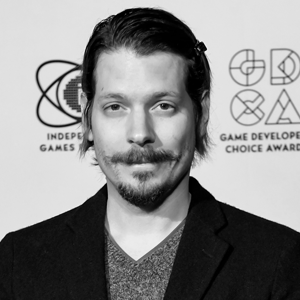
Known for:
Papers, Please (2013), Return of the Obra Dinn (2018)
Biography:
Lucas Pope (born 1977) is an American indie game designer and former developer at Naughty Dog, best known for creating critically acclaimed experimental games. He grew up in Virginia, later moving to Japan, and eventually settled in Saitama, Japan, with his family. Pope studied computer science and entered the game industry working on mainstream projects before finding his true calling in independent development.
Career beginnings:
Pope worked as a programmer at Naughty Dog, contributing to popular titles like Uncharted: Drake’s Fortune. However, he sought more creative freedom and left the studio to focus on personal projects. His breakthrough came with Papers, Please (2013), a dystopian puzzle-simulation game about immigration control, which became a landmark in indie game design.
Notable works and release dates:
- Papers, Please — 2013
- Return of the Obra Dinn — 2018
Style and design philosophy:
Pope’s design philosophy revolves around creating games that challenge players with moral dilemmas, unconventional mechanics, and innovative presentation. Papers, Please explored themes of bureaucracy, ethics, and survival, while Return of the Obra Dinn reinvented detective gameplay with a unique monochrome visual style and deductive reasoning. His work emphasizes narrative depth and experimental systems over traditional formulas.
Recognition and awards:
- Papers, Please won the BAFTA Games Award for Strategy and Simulation and was hailed as one of the most influential indie titles of the decade.
- Return of the Obra Dinn received the BAFTA for Artistic Achievement and Game Design, as well as numerous Game of the Year awards.
- Pope is celebrated as a leading innovator in indie game design, often credited with expanding the boundaries of what video games can express.
Sources:
- Wikipedia
- BAFTA Game Awards archives
- Game Developer magazine interviews
